Search
Remove Ads
Advertisement
Summary 
Loading AI-generated summary based on World History Encyclopedia articles ...
Search Results
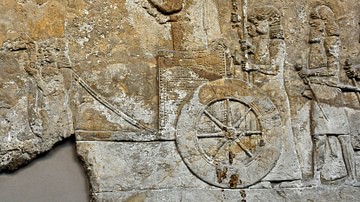
Definition
Sennacherib
Sennacherib (r. 705-681 BCE) was the second king of the Sargonid Dynasty of Assyria (founded by his father Sargon II, r. 722-705 BCE). He is one of the most famous Assyrian kings owing to the part he plays in narratives in the biblical Old...
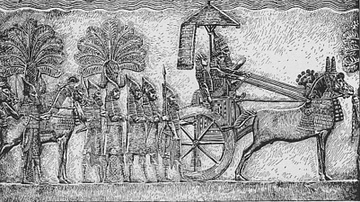
Image
Sennacherib
Sennacherib of Assyria (reigned 704 – 681 BC) during his Babylonian war, relief from his palace in Nineveh.
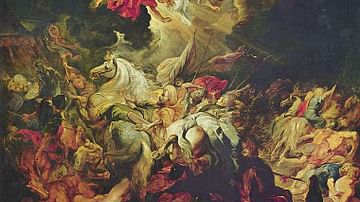
Article
The Mutual Destruction of Sennacherib & Babylon
The reign of Assyrian king Sennacherib (705-681 BCE) was chiefly characterized by his difficulties with Babylon. Throughout the history of the Assyrian Empire, Babylon had caused problems and had even been destroyed by the Assyrian king Tukulti-Ninurta...
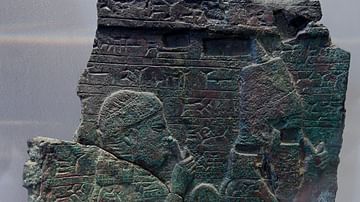
Definition
Zakutu
Zakutu (l. c. 728 - c. 668 BCE) was the Akkadian name of Naqi’a, a secondary wife of Sennacherib of Assyria (r. 705-681 BCE). Though she was not Sennacherib's queen, she bore him a son, Esarhaddon, who would succeed him. She may have ruled...
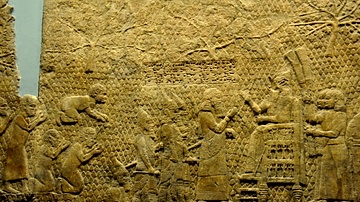
Image
Sennacherib and the Fall of Lachish
This wall relief depicts the Assyrian king Sennacherib after the fall of Lachish (Lakhisha), the second largest city in Judah Kingdom. The king sits on a marvelous throne and watches prisoners. He also greets an Assyrian official who appears...
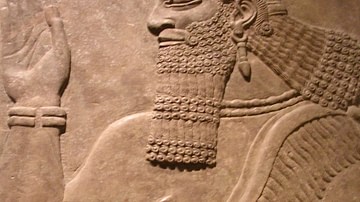
Definition
Neo-Assyrian Empire
The Neo-Assyrian Empire (912-612 BCE) was the final stage of the Assyrian Empire, stretching throughout Mesopotamia, the Levant, Egypt, Anatolia, and into parts of Persia and Arabia. Beginning with the reign of Adad Nirari II (912-891 BCE...
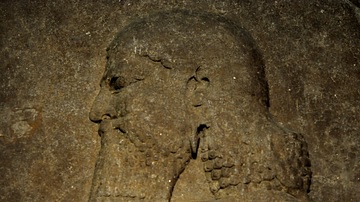
Image
Sennacherib as a Crown Prince
Detail of a gypsum wall relief showing an Assyrian Official wearing a diadem, possibly Sennacherib, the crown prince, who faces Sargon II, his father (not shown here). Neo-Assyrian Period, 710-705 BCE. From the palace of Sargon II at Khorsabad...

Definition
Sargonid Dynasty
The Sargonid Dynasty was the last ruling house of the Neo-Assyrian Empire from 722-612 BCE, beginning with the reign of Sargon II and ending with fall of the Neo-Assyrian Empire. Some of the most famous kings in the history of Assyria come...
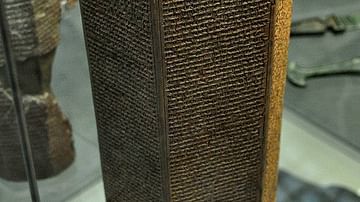
Image
The Taylor Prism of King Sennacherib, Nineveh
This prism records the first eight campaigns of the Assyrian King Sennacherib (704-681 BCE). This six-sided baked clay document (or prism) was discovered at the Assyrian capital Nineveh, in an area known today as Nebi Yunus. It was acquired...
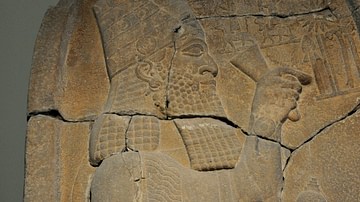
Definition
Esarhaddon
Esarhaddon (r. 681-669 BCE) was the third king of the Sargonid Dynasty of the Neo-Assyrian Empire. He was the youngest son of King Sennacherib (r. 705-681 BCE), and his mother was not the queen but a secondary wife, Zakutu (also known as...